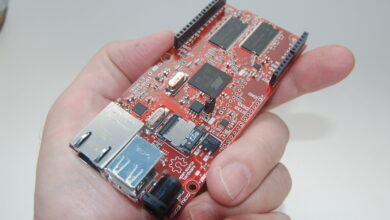Top 10 Tips to Ace Cybersecurity Job Interviews

Starting a career in cybersecurity means that you’ll be working with technology to protect systems, networks, and programs from digital attacks. But getting hired in this field isn’t just about being good at these technologies, it’s also important to know how to do well during a job interview for a cybersecurity job position. Preparing well before interviews, showcasing enthusiasm, demonstrating awareness of current cyber threats/news, and expressing willingness for continuous learning and professional growth opportunities within the field will help increase your chances of success.
In this guide, we will talk about ten important tips that can help you succeed in your cybersecurity interview and make yourself stand out among other candidates who might also be applying for the same position as you.
Top 10 Tips for Cybersecurity Job Interviews
When preparing for a cybersecurity job interview, there are important tips to keep in mind that can improve your chances of landing a job. Here are the top 10 tips:
- Prepare for Your Interview by Researching the Company: Let’s answer the question of how to prepare for an Interview, particularly for a cybersecurity role. Note that it is important to do some research on the company you’re applying to showcase your thoughtfulness and dedication as a candidate.
- Take a look at their website, annual reports, and news articles online.
- Gather information about their history, values, products, or services to see how your skills match what they want.
- Research & Practice Common Cybersecurity Interview Questions: To have a successful cybersecurity interview, it’s important to spend time practicing common cybersecurity questions and answers.
- This will help you feel more confident and prepared. It’s especially useful to practice with someone else so you can give detailed answers and think quickly on your feet.
- Whether the questions are specific to the job or general ones about your interest in cybersecurity, practicing will improve your chances of getting hired.
- Expect Behavioral/Technical Interviews
When searching for a cybersecurity job, be prepared to face various types of interviews.
- They can ask about your previous experiences and how you dealt with specific work-related situations.
- Additionally, they will likely test your understanding of topics in cybersecurity as well as security protocols and tools.
- The goal is to assess your problem-solving skills, knowledge of security technology, and ability to explain complex technical concepts clearly.
- Talk About Your Experience with Practical Examples: Understand your resume well and highlight how previous roles and projects contributed to your expertise.
- During the interview, talk about times when you identified weaknesses, implemented effective solutions, and collaborated with teams to improve systems.
- Discuss certifications, workshops attended, and personal projects as proof of continuous learning & practical use of what you’ve learned.
- Have your Certifications & Resume Readily Available
Make sure to keep your certifications and resume easily accessible. Having relevant, up-to-date certifications can greatly enhance your job application.
- During an interview, talk about what you’ve learned from training and how it has helped you solve real-world problems.
- When updating your resume, highlight any practical experiences where you have successfully dealt with security issues while earning these certifications.
- Be Polite and Truthful
When you have a job interview, it’s super important to be friendly and truthful.
- Show that you appreciate the person interviewing you and genuinely show enthusiasm for the job.
- It’s also really important to honestly talk about your skills and experiences.
- Instead of talking bad about previous jobs, focus on what positive things you learned from them.
- Speak confidently about the strengths that connect with the job you want.
- Don’t forget – keep a happy body language throughout, and say “thank you” at the end. It makes people think highly of your professionalism.
- Dress Smart Even for Online Interviews: When getting ready for job interviews, it’s important to dress nicely and look professional. This includes online meetings too.
- Choose clothes that match the company vibe but are still a bit formal to make a good first impression.
- Also, during online interviews, ensure your background looks clean and professional.
- Overall, being prepared and looking put together will help you stand out during both virtual and in-person job interviews.
- Don’t be Afraid to Ask Questions: Make sure you have good questions to ask during your interview.
- This is important because it shows that you are genuinely interested in the company and the job.
- It also gives you a chance to learn more about what the position entails. Ask about things like company culture, daily tasks, or projects they are working on to show that you’re eager and committed.
- Be Conversational
During a job interview, try to have an easygoing and friendly conversation with the interviewer.
- Show that you can communicate well by listening actively and responding genuinely. Be professional while also letting your personality come through.
- Make sure to listen carefully, look them in the eye, and use open body language so they see you as confident.
- Having a conversational style will help build rapport and allow you to explain your qualifications more effectively.
- Use the STAR methodology
When you’re in a job interview, use the STAR method (Situation, Task, Action, Result) to talk about your past experiences.
- Situation: Describe a specific situation or challenge that you faced in your previous job or project.
- Task: Explain what task or responsibility was assigned to you within that situation.
- Action: Discuss the actions and steps you took to address and resolve the problem.
- Result: Share the positive outcome achieved as a result of your actions. Highlight any quantifiable achievements, lessons learned, and valuable skills gained.
By following this structure during a job interview, it becomes easier for interviewers to understand how effectively you handle challenges and contribute positively in different situations.
Common Interview Questions to Expect
During a cyber security job interview, you will be asked various questions to test your knowledge of technology and ability to solve problems. They want to know how well you understand cybersecurity concepts. Here are some common questions that might come up:
- Can you explain regulatory compliance in cybersecurity?
- What is the difference between threat, vulnerability, and risk?
- What are the indicators that suggest a system has been compromised/hacked?
- Could you outline the necessary steps to secure a vulnerable system?
- Which authentication methods do organizations often use?
- How would you go about identifying security threats effectively?
In addition, be prepared for more general questions like:
- Why do you want to leave your current job, and
- What interests you most about working at this company?
- What factors influenced your decision to pursue a career in cybersecurity?
Knowing these types of questions beforehand will keep the conversation going smoothly during the interview and show that you’re well-prepared, which comes across positively to the interviewer.
Common Questions to Ask Interviewers
During a job interview, it’s really important to ask questions. This shows that you’re interested and helps you learn more about the job and company. Here are some good questions to think about asking:
- Currently, what major cybersecurity threats is the company encountering?
- Can you outline your strategy for responding to a breach or security incident if it occurs?
- What security measures does the organization employ to safeguard its systems and data?
- How frequently are security controls tested within the company’s framework?
Conclusion
When it comes to cybersecurity job interviews, careful preparation is very important. You should research the company, and use the STAR method for answering questions. Asking smart questions will not only show that you’re curious but also give you useful information. By following these strategies, you can not only get hired in a cybersecurity job but also do well in this field.


